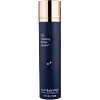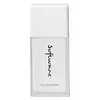What's inside
What's inside
 Key Ingredients
Key Ingredients

 Benefits
Benefits

 Concerns
Concerns

 Ingredients Side-by-side
Ingredients Side-by-side

Water
Skin ConditioningCaprylic/Capric Triglyceride
MaskingGlyceryl Stearate
EmollientCholesterol
EmollientGlycerin
HumectantHydroxyethyl Urea
HumectantButylene Glycol
HumectantSodium Lactate
BufferingPolyglyceryl-6 Palmitate/Succinate
EmulsifyingSodium PCA
HumectantSqualane
EmollientIsocetyl Stearoyl Stearate
EmollientEthyl Macadamiate
Skin ConditioningN-Capryloyl Lysine
EmollientJojoba Esters
EmollientCarnitine
CleansingDimethicone
EmollientSodium Hyaluronate
HumectantUrea
BufferingAminopropyl Ascorbyl Phosphate
AntioxidantSalicornia Herbacea Extract
Skin ConditioningCeramide EOP
Skin ConditioningCeramide NP
Skin ConditioningLinoleic Acid
CleansingLinolenic Acid
CleansingCarnosine
Skin ConditioningCaffeine
Skin ConditioningSalicylic Acid
MaskingTocopherol
AntioxidantPullulan
Caprylyl Methicone
Skin ConditioningSclerotium Gum
Emulsion StabilisingXanthan Gum
EmulsifyingCetearyl Alcohol
EmollientEthylhexylglycerin
Skin ConditioningTriethyl Citrate
MaskingSilica
AbrasiveLecithin
EmollientPhytic Acid
Pentaerythrityl Tetra-Di-T-Butyl Hydroxyhydrocinnamate
AntioxidantTriacetin
AntimicrobialSodium Hydroxide
BufferingPhenoxyethanol
PreservativeLactic Acid
BufferingWater, Caprylic/Capric Triglyceride, Glyceryl Stearate, Cholesterol, Glycerin, Hydroxyethyl Urea, Butylene Glycol, Sodium Lactate, Polyglyceryl-6 Palmitate/Succinate, Sodium PCA, Squalane, Isocetyl Stearoyl Stearate, Ethyl Macadamiate, N-Capryloyl Lysine, Jojoba Esters, Carnitine, Dimethicone, Sodium Hyaluronate, Urea, Aminopropyl Ascorbyl Phosphate, Salicornia Herbacea Extract, Ceramide EOP, Ceramide NP, Linoleic Acid, Linolenic Acid, Carnosine, Caffeine, Salicylic Acid, Tocopherol, Pullulan, Caprylyl Methicone, Sclerotium Gum, Xanthan Gum, Cetearyl Alcohol, Ethylhexylglycerin, Triethyl Citrate, Silica, Lecithin, Phytic Acid, Pentaerythrityl Tetra-Di-T-Butyl Hydroxyhydrocinnamate, Triacetin, Sodium Hydroxide, Phenoxyethanol, Lactic Acid
Water
Skin ConditioningCaprylic/Capric Triglyceride
MaskingDicaprylyl Carbonate
EmollientGlyceryl Stearate Se
EmulsifyingPropanediol
SolventBenzyl Alcohol
PerfumingTocopheryl Acetate
AntioxidantHydroxyacetophenone
AntioxidantMagnesium Aluminum Silicate
AbsorbentSodium PCA
HumectantPanthenol
Skin ConditioningXanthan Gum
EmulsifyingSodium Hyaluronate
HumectantAscorbyl Glucoside
AntioxidantSodium Lauroyl Lactylate
EmulsifyingCeramide NP
Skin ConditioningPhenoxyethanol
PreservativePhytosphingosine
Skin ConditioningCeramide AP
Skin ConditioningCholesterol
EmollientEthylhexylglycerin
Skin ConditioningCarbomer
Emulsion StabilisingCeramide EOP
Skin ConditioningWater, Caprylic/Capric Triglyceride, Dicaprylyl Carbonate, Glyceryl Stearate Se, Propanediol, Benzyl Alcohol, Tocopheryl Acetate, Hydroxyacetophenone, Magnesium Aluminum Silicate, Sodium PCA, Panthenol, Xanthan Gum, Sodium Hyaluronate, Ascorbyl Glucoside, Sodium Lauroyl Lactylate, Ceramide NP, Phenoxyethanol, Phytosphingosine, Ceramide AP, Cholesterol, Ethylhexylglycerin, Carbomer, Ceramide EOP
Ingredients Explained
These ingredients are found in both products.
Ingredients higher up in an ingredient list are typically present in a larger amount.
This ingredient is an emollient, solvent, and texture enhancer. It is considered a skin-softener by helping the skin prevent moisture loss.
It helps thicken a product's formula and makes it easier to spread by dissolving clumping compounds.
Caprylic Triglyceride is made by combining glycerin with coconut oil, forming a clear liquid.
While there is an assumption Caprylic Triglyceride can clog pores due to it being derived from coconut oil, there is no research supporting this.
Learn more about Caprylic/Capric TriglycerideCeramide EOP is formally known as Ceramide 1 and Ceramide 1 A.
EOP stands for a linked Ester fatty acid, a linked Omega hydroxy fatty acid, and the Phytosphingosine base.
Ceramides are intercellular lipids naturally found in our skin. They bind dead skin cells together to create a barrier. The ceramides in our skin have the ability to hold water to keep our skin hydrated.
Ceramides are an important building block for our skin barrier. A strong skin barrier helps with:
If you would like to eat ceramides, sweet potatoes contain a small amount.
Read more about other common types of ceramides here:
Learn more about Ceramide EOPCeramide NP is a type of ceramide and formally known as ceramide 3.
Ceramides are intercellular lipids naturally found in our skin that bonds dead skin cells together to create a barrier. They are known for their ability to hold water and thus are a great ingredient for dry skin.
Ceramides are an important building block for our skin barrier. A stronger barrier helps the skin look more firm and hydrated. By bolstering the skin ceramides act as a barrier against irritating ingredients. This can help with inflammation as well.
If you would like to eat ceramides, sweet potatoes contain a small amount.
Read more about other common types of ceramides here:
Ceramide AP
Ceramide EOP
Cholesterol is a class of organic molecules called lipids. It helps hydrate your skin and is essential to having a healthy skin barrier.
Our skin naturally contains cholesterol in the outermost layer. Besides cholesterol, it also contains ceramides and fatty acids. Cholesterol makes up about 1/4 of your skin's outer layer and barrier. Your skin barrier is responsible for keeping allergens and microbes out. Having a healthy skin barrier is also responsible for keeping your skin firm and plump.
Our bodies use cholestrol to create vitamin D, steroid hormones, and more.
Learn more about CholesterolEthylhexylglycerin (we can't pronounce this either) is commonly used as a preservative and skin softener. It is derived from glyceryl.
You might see Ethylhexylglycerin often paired with other preservatives such as phenoxyethanol. Ethylhexylglycerin has been found to increase the effectiveness of these other preservatives.
Phenoxyethanol is a preservative that has germicide, antimicrobial, and aromatic properties. Studies show that phenoxyethanol can prevent microbial growth. By itself, it has a scent that is similar to that of a rose.
It's often used in formulations along with Caprylyl Glycol to preserve the shelf life of products.
Sodium Hyaluronate is hyaluronic acid's salt form. It is commonly derived from the sodium salt of hyaluronic acid.
Like hyaluronic acid, it is great at holding water and acts as a humectant. This makes it a great skin hydrating ingredient.
Sodium Hyaluronate is naturally occurring in our bodies and is mostly found in eye fluid and joints.
These are some other common types of Hyaluronic Acid:
Learn more about Sodium HyaluronateSodium PCA is the sodium salt of pyroglutamic acid. It is naturally occurring in our skin's natural moisturizing factors where it works to maintain hydration.
The PCA stands for pyrrolidone carboxylic acid, a natural amino acid derivative.
This ingredient has skin conditioning, anti-inflammatory, and humectant properties. Humectants help hydrate your skin by drawing moisture from the air. This helps keep your skin moisturized.
Learn more about Sodium PCAWater. It's the most common cosmetic ingredient of all. You'll usually see it at the top of ingredient lists, meaning that it makes up the largest part of the product.
So why is it so popular? Water most often acts as a solvent - this means that it helps dissolve other ingredients into the formulation.
You'll also recognize water as that liquid we all need to stay alive. If you see this, drink a glass of water. Stay hydrated!
Learn more about WaterXanthan gum is used as a stabilizer and thickener within cosmetic products. It helps give products a sticky, thick feeling - preventing them from being too runny.
On the technical side of things, xanthan gum is a polysaccharide - a combination consisting of multiple sugar molecules bonded together.
Xanthan gum is a pretty common and great ingredient. It is a natural, non-toxic, non-irritating ingredient that is also commonly used in food products.
Learn more about Xanthan Gum